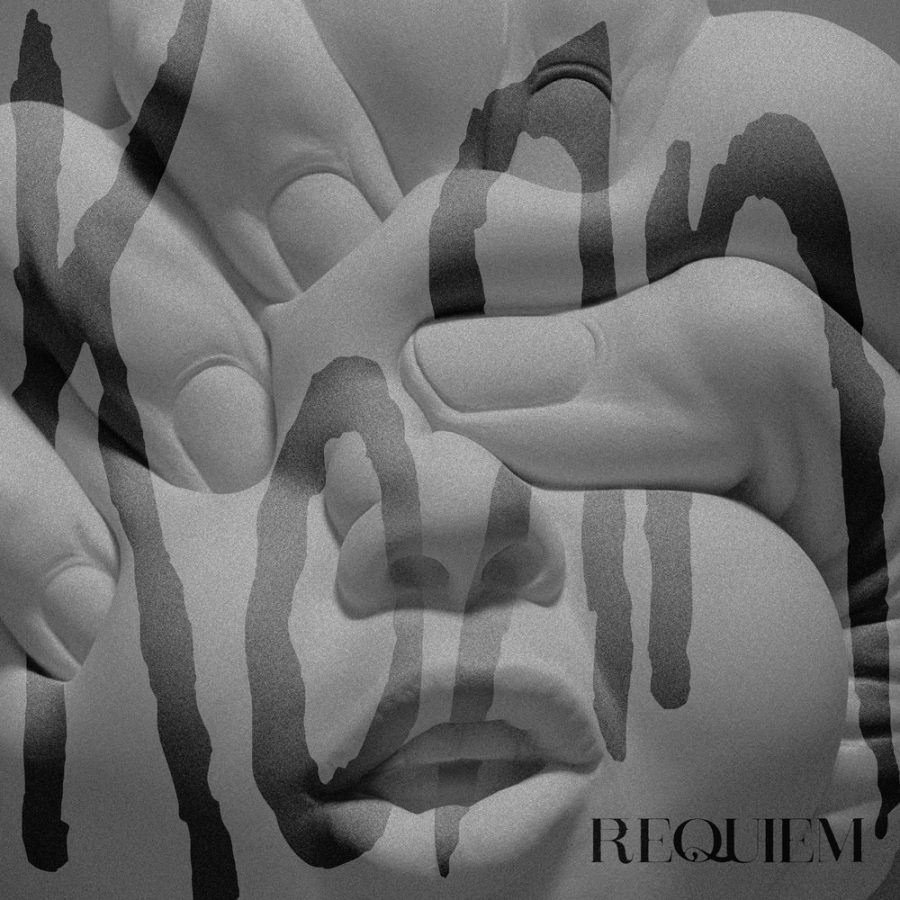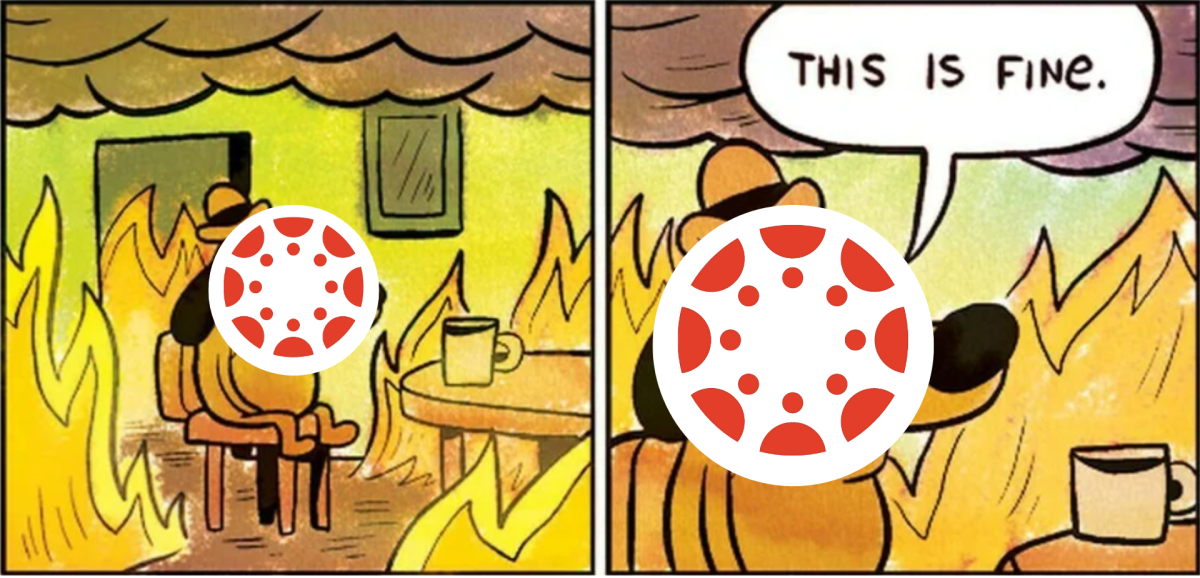Korn’s “Requiem” is Dark and Hopeful
February 23, 2022
Still kicking after 29 years, nu metal legends, Korn, have released a new album. Their 14th studio album, “Requiem” harkens back to its classic sound while staying fresh. Their recording of the album in analog as opposed to digital was intentional, making the sound of the instruments feel “real” without the cleaner recording that digital typically offers. Lyrically, the focus on personal topics like depression and anxiety have shifted to a different perspective. Yes, the heavy sound and harsh vocals are still there. Yes, the topic is still about negative and haunting emotions. However, this album is not the same as the previous album. To put it into context, Korn’s previous album, “The Nothing,” was an emotionally raw and revealing album. Jonathan Davis spilled out his heart and soul during a time of personal struggle. In “Requiem,” there’s a noticeable tonal shift in the writing. It doesn’t depict the explosive nature of agony. Instead, the album tells the story of a battleworn individual; sorrowful from the damage but somehow still standing, reaching for the light. As guitarist Brian “Head” Welch said in a Metal Hammer interview, “[The album] feels more vulnerable.”
Korn is no stranger to sensitive subjects in their lyricism. Every band member has struggled with the same mental health issues that our generation struggles with today. Through their music, they offer an avenue to release that negativity, and it resonates with a lot of people. It’s a way to vent all that negativity while showing that you’re not alone with your struggles. As a life-long fan, seeing a new album come out was a surprise that I fully welcomed. The monochrome album cover eerily displays a hand gripping what appears to be a baby doll’s head, distorting the shape of it. Korn has always been deliberate with their covers and the contrast between the image and the title, “Requiem” gives us a glimpse of what’s to be expected from the album.
The first two songs, “Forgotten” and “Let the Dark do the Rest” are introspective. “Forgotten” is aggressive, with a fierce “Bow down!” kicking the song back into its main groove from its cleaner section. The former shows someone fighting to break from the shackles. These two tracks lyrically look back at a time of deep suffering. It feels like you’re on the other side of a two-way mirror, and someone is looking deep into their reflection on the other side. You get to experience the way they look at themselves. Anger is present in the instrumentation, but hope makes its way into the softer sections. It’s mesmerizing.
The third track, “Start the Healing” was originally released as a single to showcase the album. The title is blunt. The opening lines are inviting and open: “Do you really wanna come with me? It’s hard to see from the eyes of a stranger.” Distorted and muffled guitars fade as the groove kicks in. Jonathan’s delivery of his vocals demonstrates how he’s determined throughout the difficult and painful healing process. The harsh vocals contrast with his softer voice, personifying the individual’s grit in the track: “I can take it all away, the feeling. Break apart the pain and start the healing.” This track is about that extra mile you take to heal yourself after recognizing the issue. The chorus even references the first track’s command of “Bow down!” with the line: “I should’ve withstood, I shouldn’t bow down.” The thunderous drums, bass, and guitar all collaborate to elevate the tone. The harmony in both tracks makes them sound hopeful.
A familiar riff is brought to life in the fourth track, “Lost in the Grandeur”. It originally appeared on Korn’s “Reconciliation” DVD, seven years before this album was released. It’s great to see this riff find its place in a finished track.
The band kicks into action with this song while the guitars rhythmically play palm muted strings. The way it sounds, however, isn’t percussive like Metallica’s or squealish like Zakk Wylde’s. Instead, it sounds like the strings are being scratched. It’s out of place and ugly-sounding, but it works beautifully. Given the context of the title, Jonathan is talking to the music industry. The words: “But I’ve done everything you say. I’m so fed up with the things I portray” show how exhausting fame can be. In the bridge, only the bass and drums can be heard. Sinister, mocking laughter can be heard in the background, filling the gap of silence that would have been there. Jonathan’s vocals are stressed and anxious, then in the bridge, he snaps. The track slams into full gear while Jonathon screams his vocals. The pressure has built up enough and he snaps, screaming “I won’t let you take this. Keep on trying. Motherf***er.”
“My Confession” is my second favorite track. The opening riff is reminiscent of Korn’s “Issues” album. The vocal melody is catchy and it fits with the taunting lyrics of the verses. Jonathan often uses different sections of songs to portray a conversation with their negative emotions. Here, he uses it effectively. The chorus is the struggling individual that’s still pushing for peace: “All I want is things to turn around.” The song still carries hope but it’s a dwindling flame since the mocking is making it harder to keep pushing forward. This story-telling is also present in the instrumentation, getting noisier and heavier while showing the conflict.
“Worst Is on Its Way”, the final track, is my personal favorite. It has a nostalgic Korn sound, with a structure similar to tracks from their self-titled debut album. After the chorus, the song breaks into a bridge where Davis does his signature scat vocals, popularly associated with “Freak on a Leash”. The track is foreboding, highlighting how there’s a bigger threat stemming from the negativity. The end of the song features a climactic ending, repeating the bridge. Except, the rest of the band is playing in sync with Davis’ vocals. Every time he finishes a section of the vocals, the band adds weight by pounding in the instruments at the end of the section. The song ends with feedback and other effects ringing out for the last 20 seconds.
“Requiem” is a beautifully crafted album that shows how much the band has matured as both people and musicians. It takes you on a ride through the lyrical exploration of suffering and hope. The tracks that weren’t mentioned here, like “Disconnect”, still offer their own sentiment regarding the arduous journey that is healing from personal damage. Musically, the band experiments with instruments such as synthesizers and acoustics, making very subtle appearances in every track. However, Korn doesn’t deviate from that intoxicating sound that their original fans fell in love with. My only complaint is that it leaves you wanting more by the end of a listen through. After all, it’s only 30 minutes compared to the average hour’s worth of music that Korn albums usually have. In the end, “Requiem” stands apart from former albums, but thrives off of its uniqueness.









